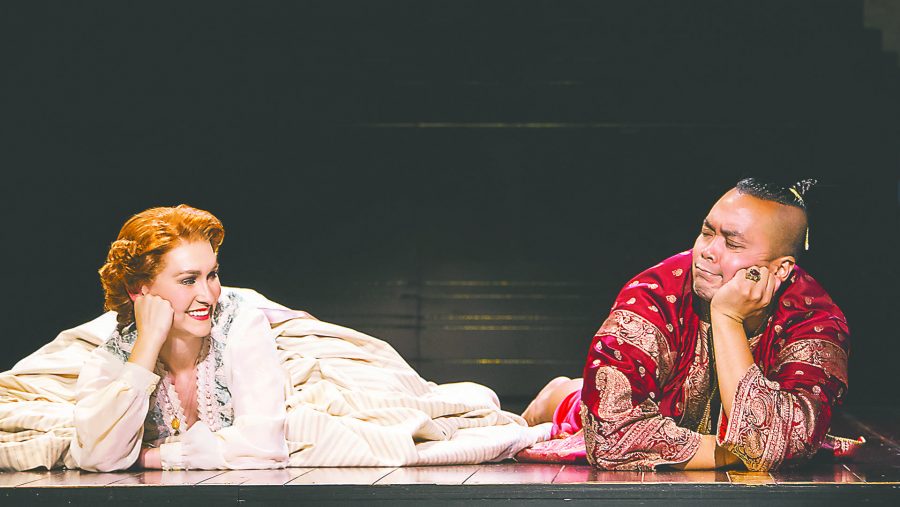A Rodgers and Hammerstein chestnut comes back to life.
By Madison Lotenschtein
Having seen the The King and I before, I felt that I would embrace the classic musical with a fond familiarity. However, I found myself to be surprised. It has sustained its timelessness with clever writing, political humor, and beautiful, fun loving, music.
As the curtain raised, the audience was welcomed with an enormous steamboat prop; Mrs. Anna Leonowens and her son, Louis, are eagerly gripping the rails, awaiting their new and uncertain life.
Not a moment after setting foot off the gangplank, Anna is confronted with her first of many predicaments: a broken promise. The King had promised Anna and her son a red brick house that would be attached to the palace. The proud monarch, however, had different plans for the new schoolteacher and her son.
Throughout the musical, I began to sense the political aspect of Rodgers and Hammerstein. The duo largely focused on sexism and Europe’s unfair domination and colonization of Asia. A historically accurate musical will never fail to win the audience’s hearts, in my opinion. Tuptim, a slave who has been given as a present to the King from the king of Burma, strikes a haunting phrase in her song “My Lord and Master.” “The smile beneath my smile, he’ll never see.” Her theme is a tragic one, for she represents the wrongness of slavery, and even more recently, human sex trafficking.
RELATED: Hancher welcomes Broadway royalty
“Shall We Dance?” has proven itself to be overflowing with beauty and some sort of innocence that goes along with a “first dance.” The lights shine upon Anna’s satin, Cinderella-like ball gown while the she and the king dance around the stage, making me grin.
Their friendship is shown through the dance. Although they may be circling about, they help each other in many different ways. At the end of the musical, the King leaves the ballroom floor, leaving Anna to dance on her own.
The King, as stubborn and arrogant he is, may be the most relatable character in the show. He shows the audience his vulnerability and how he struggles with maintaining a mask of knowledge and strength. “Every day I do my best for one more day,” he cries out.
The societies we live in, whether you’re rich or poor, cause people to live for one more day. For example, you may have homework from three classes, an exam to take, and a paper to write. Day after day you do enormous amounts of work to keep in step with your classes. That is how a student, or any other member of the breathing world, can whistle the same tune as the King.
With its lavish costumes, sets, and talented performers, The King and I has been a success yet again in the Broadway world. The genius of this piece gives me wonderful satisfaction, and I cannot help but rave over such a well-thought, and well -done performance.



